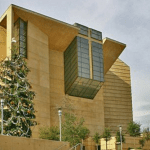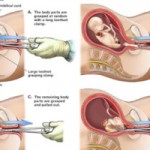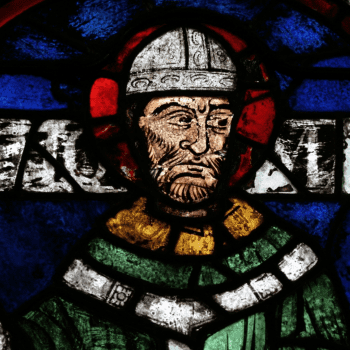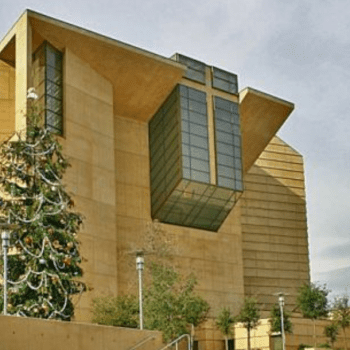November 11, 2020 marks the 400th anniversary of the Pilgrims landing in Plymouth, Massachusetts.
Next year marks the 400th anniversary of the first Thanksgiving held in North America in November 1621. Governor William Bradford declared a Day of Thanksgiving and the Pilgrims celebrated with 90 Indians, enjoying a three-day-long feast.
The harvest of 1621 was abundant thanks to the help of their friend, an Indian named Squanto, who had helped them plant crops and grow and store food. He also taught them how and where to fish. Were it not for his help, many, including Gov. Bradford, believed they would have starved to death.
Later on, the new colony’s food supply was greatly depleted after 35 British travelers arrived on a ship. Many colonists died that winter from sickness and starvation. Just barely two years after their arrival, by the spring of 1622, the Pilgrims were starving.
The winter of 1621-1622 they were reduced to daily rations of five kernels of corn per person.
Twelve weeks of drought dried up their crops by April 1623. Desperate and crying out to God they gathered as a group and fasted and prayed for eight hours straight. The next morning they reported that a gentle rain fell on their land and continued for 14 days. Their crops were saved, and what they thought was lost was now abundant. They even had a surplus of corn, which only a few months earlier had seemed unimaginable.
By Thanksgiving 1623, the Pilgrims had an abundance of food to eat but began their celebration differently. Before their meal they placed five kernels of corn on their plates to remind them of how much God had provided for them, “lest anyone should forget.”
The story is wonderfully told in the book, The Light and the Glory: Did God Have a Plan for America?
The five kernels of corn help us to remember five things for which we are thankful.
- The first kernel reminds us that God loves us.
- The second kernel reminds us that God provides for all our needs.
- The third kernel reminds us of the friends God has given us.
- The fourth kernel reminds us of everyone God has given us who love us.
- The fifth kernel reminds us that God hears our prayers and answers us.
Facing near starvation they pressed on, they looked inward and confessed their sins asking God to have mercy to save them. As a result of God’s mercy and providence they survived.
The five kernels of corn helped them remember their arduous journey just three years prior. They had travelled across the Atlantic Ocean in a cargo ship not meant for passengers. Their destination was Virginia—to reach an already settled area. Instead, they landed in a deserted, barren land in a bitter cold winter in Cape Cod.
William Bradford, who became their governor, was initially booked to sail on another ship departing from Holland. But that ship twice returned to port because of structural issues. He joined Pilgrims on the Mayflower, which first left Southampton, then Plymouth, England, taking on more supplies and people than they had planned for, including Bradford and his wife.
There were many setbacks and delays to even get to the point of departure.
Once they set sail across the Atlantic Ocean they were on board the Mayflower for two months surviving treacherous storms. Once they landed they were on board for another month while men went out on several expeditions to figure out where they could set up camp.
Many were sick on the journey and five died on the ship when they first arrived in the harbor.
Still—they pressed on—and created one of the most fundamental governing documents in the history of the U.S., the Mayflower Compact.
In 1621, they met Squanto, whom to their astonishment, could speak perfect English. He became their interpreter, enabling them to join alliances with Chief Massasoit of the Wampanoag tribe.
What the Pilgrims and Squanto could not have known was that in God’s providence, Squanto had been kidnapped twice, traveled across the Atlantic Ocean four times, learned English and been spared from the Small Pox, which killed his entire tribe while he was gone. The Pilgrims arrived in an uninhabited land—where his tribe had been living— that could have otherwise been hostile towards them.
If Squanto had not been able to return to his homeland without all the help he received along the way he would not have been able to help the Pilgrims survive.
The five kernels of corn served as a reminder of all of the ways in which God had protected them. Now 400 years later, that testimony lives on through the 35 million direct descendants from the Mayflower, as recorded by the Mayflower Society.
William Bradford wrote,
“As one small candle may light a thousand, so the light kindled here has shown unto many, yea in some sort to our whole nation … We have noted these things so that you might see their worth and not negligently lose what your fathers have obtained with so much hardship.”
For more information:
The only living history village dedicated to the Pilgrims, a replica of Plymouth Colony in Plymouth, Massachusetts, exists to educate people about how they lived. It is hosting virtual field trips and online activities and has published a plethora of information and videos. Next year they are celebrating the 400-year anniversary of the first Thanksgiving held in North America in November 1621.
An excellent miniseries about the Pilgrims, “Saints and Strangers,” was produced by National Geographic, and can be watched on demand.











